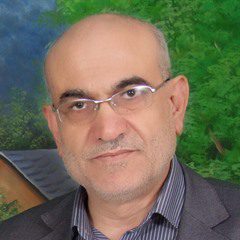Sheikh Raed Salah’s legal victory against the British government’s decision to deport him from the UK represents one more example of the battles he has been fighting for years against the Israelis and their supporters inside and outside historic Palestine.
The Upper Immigration Tribunal’s decision emphasises the independence of the British judicial system and justifies the Sheikh’s decision to stay in Britain to fight to clear his name. He was under very strict bail conditions for 10 months but he did not give up or back down. He told me and other visitors that he was confident about winning his case even when many, including myself, had our doubts.
Sheikh Raed Salah is an exceptional man who has gained a coveted place in the hearts of Muslims around the world. This is much-deserved; he has placed his life and soul at his Lord’s disposal and put himself at the service of his beloved Palestine, to be the Sentinel of Al-Aqsa’s Noble Sanctuary. He has pursued his task with dedication and commitment, regardless of the physical threats against him, including prison sentences and assassination attempts.
If it had been anyone else in his position in Britain, he would’ve chosen the easy way out and flown back home. His noble supporters in the UK, members of the Palestinian and Muslim community as well as campaigners and politicians, did not force him one way or the other. It was entirely Sheikh Raed’s decision to fight to clear his name and submit to the bail conditions which prevented him from speaking in public, required him to sign in at a local police station at a set time each day and bound him to a curfew from 6pm to 9am daily.
He believed that his case was initiated for purely political reasons, an extension of the sort of harassment instigated by the pro-Israel lobby against anyone standing up for Palestinians and their rights. This not only affects Palestinians themselves, but also people such as Sheikh Yusuf Al-Qaradawi who has faced a similar campaign by the same parties.
Although his colleagues in the Islamic Movement in Israel (“1948” Palestine) did not agree for him to stay to clear his name due to the pressing need to have him available to protect Al-Aqsa and Jerusalem against Israel’s Judaisation policies, Sheikh Raed knew the political significance of his case and opted to stay. He saw the struggle in Britain as part of the same battle as that over the soul of Jerusalem. That is why he was targeted; not because he was a threat to Britain’s security or community relations, but because he stands up for Jerusalem. He entered Britain legally with peaceful intentions to address parliamentarians and the British public on the issues facing Palestinians in Israel and the occupied Palestinian territories. The pro-Israel lobby couldn’t accept his right to freedom of speech and moved to block him, using its influence in and over the right-wing media and the government.
As such, Sheikh Raed Salah’s victory was a victory for the whole Palestinian community and, indeed, the Muslim community. Make no mistake; this was a blow for the pro-Israel lobby which, the judge ruled, had “misled” the Home Secretary through its “evidence” against the Sheikh.
If the judgement had gone against Sheikh Raed, it would have been used by the Israeli authorities against the Islamic Movement in Israel to “prove” that it is a threat to security, not only in occupied Palestine but also across Europe. Thus the decision helps to maintain the flame of freedom in the consciousness of Palestinians living in territories occupied in 1948, who are omitted from discussions and negotiations about the future of the Holy Land.
I extend my salutations to the noble Sheikh Raed Salah and all those who stood by him in his struggle in Britain. He is a hero who stands alongside all of the freedom fighters who reject the tyranny of occupation and struggle for freedom and justice.
The views expressed in this article belong to the author and do not necessarily reflect the editorial policy of Middle East Monitor.











